by Cecilia Luzi
In October 2022, I left Berlin for fieldwork in Japan. I was excited yet scared, as I was moving to a place I had never been before, and I had to conduct research alone with my one-and-a-half-year-old son. It felt like a fantastic adventure ahead but also a big leap into the unknown. After spending ten months in Japan, I returned to Berlin in early August 2023. In this post, I want to share my fieldwork experience.
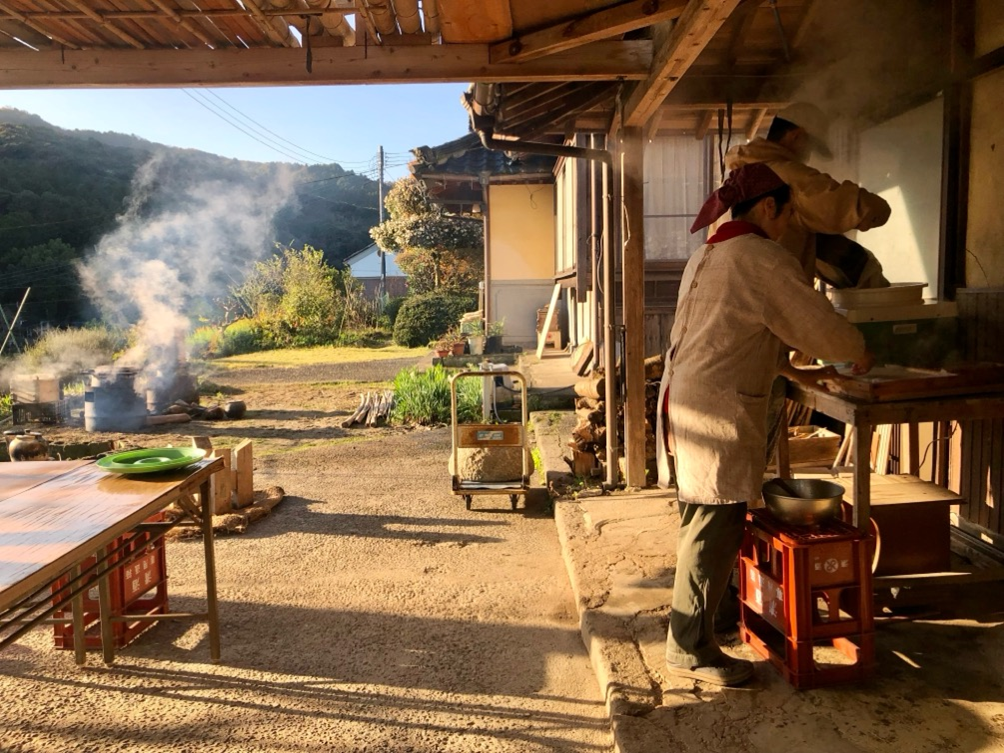
Copyright © Cecilia Luzi 2022
I spent the first five months in Buzen and the next five months in Hasami. I chose to start in Buzen because I had built connections with potential research participants online before my departure… I spent ten days in the only hotel in town in search for long-term accommodation and a rental car and expanded my network among urban migrants. During my stay in Buzen, I had a packed schedule. I explored the area, joined small markets, mochi-making sessions, kagura festivals, akiya renovation meetings, informal community meals, and talked with both locals and migrants throughout the day. In the evening, I took notes, sent messages to friends and informants, and planned for the next day. I quickly discovered that while the migrant community in Buzen was relatively small, they had connections with people in nearby towns who shared similar experiences. Within a month, I had met almost everyone in the extended migrant community. To establish trust and connections, I spent an additional month getting to know their daily routines before starting formal interviews. This familiarity allowed me to get closer to migrants and conduct most conversations in their homes, which provided valuable insights into their private lives. While in Buzen, I had to move three times. At first, I lived in a renovated warehouse at the foot of Mount Kubote. In January, I rented part of an old house that belonged to a deceased elderly lady. Finally, in my last month, I lived in a trial house owned by the municipality. Although the frequent moving was a bit of a challenge, I was able to experience different living conditions and develop a deeper understanding of the community area.
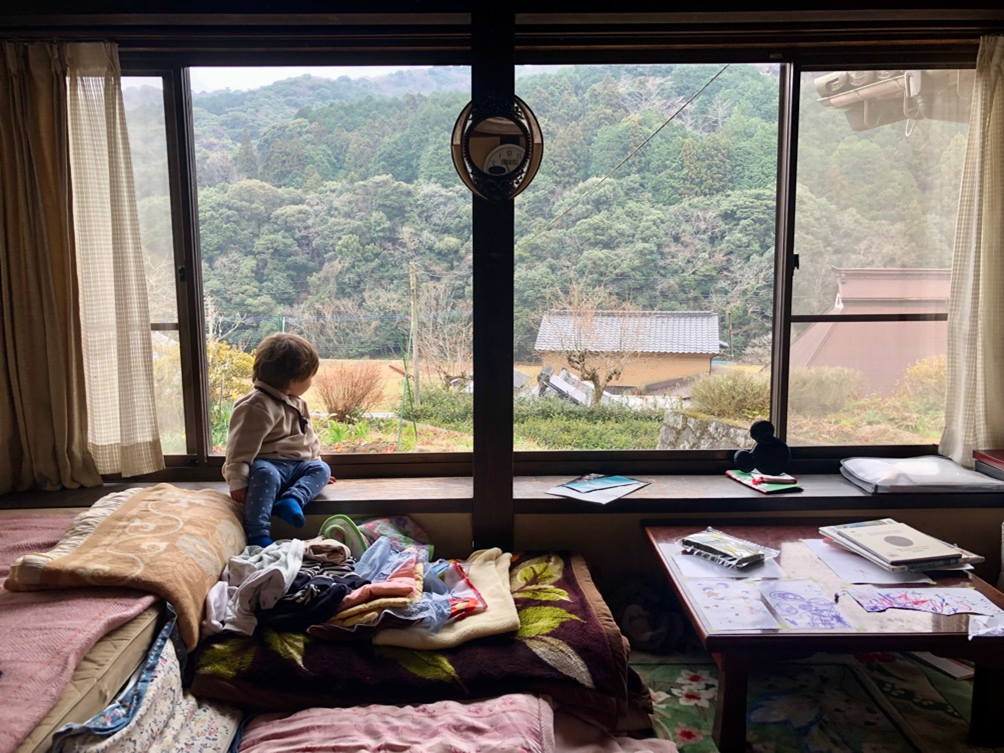
Copyright © Cecilia Luzi 2023
When the time came to move to Hasami, I began my search for accommodation two months in advance. For the first three weeks, I stayed in the municipal trial house, which was smaller, recently constructed, and better equipped than my previous accommodation. After that, I moved into a share house for employees of a major ceramic company coming to Hasami’s headquarters temporarily from all over Japan. The house was located in the heart of Hasami, attached to the company’s headquarters and main warehouse. Upon arriving in Hasami, I immediately noticed a significant difference in daily life compared to Buzen. There were many cafés and restaurants, some of which reminded me of those in big cities like Tokyo or Fukuoka. The streets were always busy, and the supermarket parking lots were full between 5 and 6 pm. From my arrival until late May, there were events taking place almost every weekend in Hasami or nearby municipalities. One of the most notable events was the tōki matsuri, which is held every year during the golden week holiday season. This market involves all the ceramic kilns in Hasami and keeps the whole town busy for over a month. Accessing migrants’ homes was more difficult in Hasami. Unlike in Buzen, where most people had flexible schedules, the migrants in Hasami were mostly company employees and artisans. Therefore, I conducted most interviews in public places like cafés, restaurants and workshops.
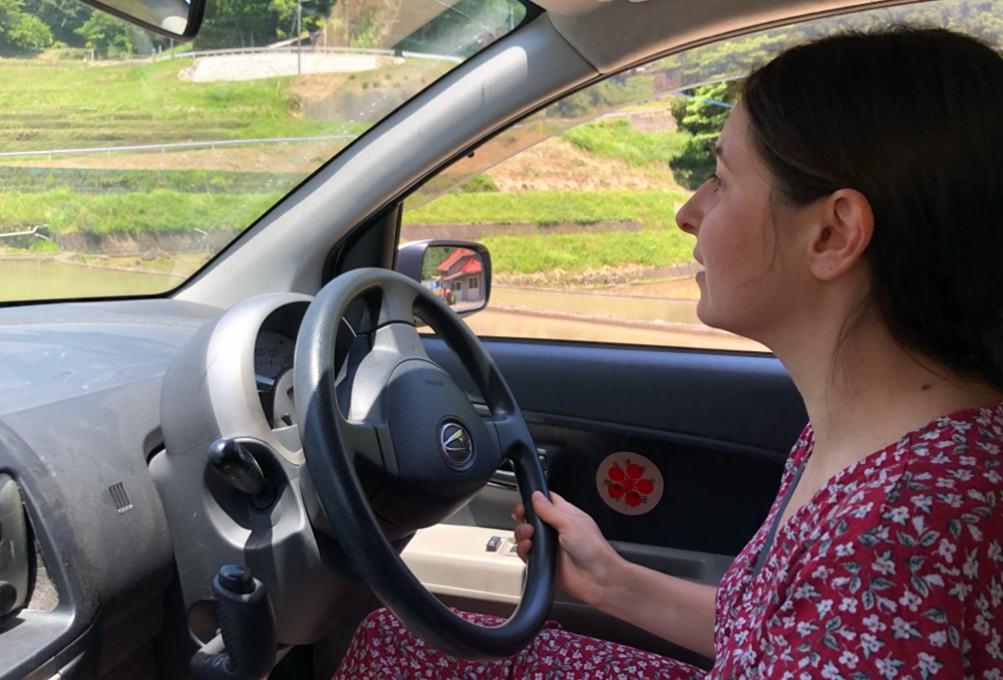
Copyright © Cecilia Luzi 2023
Buzen and Hasami are very different. Buzen stretches from the mountains to the sea. Hasami has a compact center, which makes daily activities easier and saves on gasoline costs. In Buzen, it was difficult to find accommodation for the first 10 days. The town has only one hotel, an old ryokan run by a couple over 75 years old. While the locals were warm, helpful and curious about my presence, finding accommodation and childcare for my son was a challenge. Gradually building informal relationships during my stay helped me get everything I needed. In Hasami, the experience was smoother, possibly due to the city’s familiarity with welcoming outsiders thanks to the ceramics industry and its appeal to urban migrants across the country. I quickly realized that there were structures and services in place to help newcomers. Even in the town’s administration, everyone was helpful and provided me with all the necessary information to manage the bureaucratic procedures for my stay.
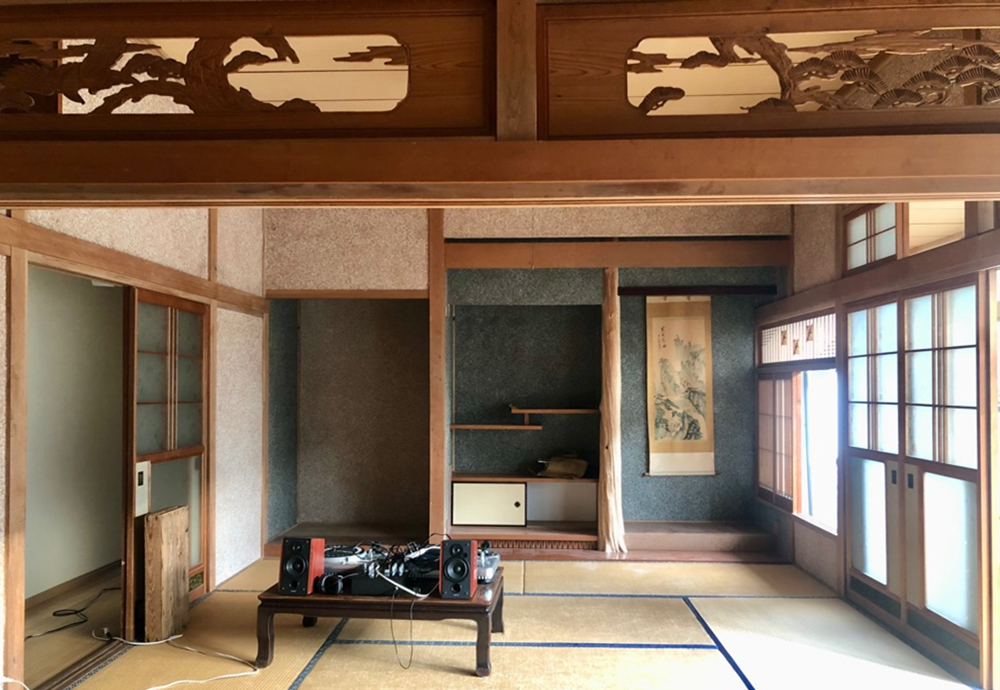
Copyright © Cecilia Luzi 2022
During my fieldwork, I was able to observe first-hand how both locals and migrants in Buzen and Hasami interacted with their environment by immersing myself in the daily rhythms of the two towns. I visited local grocery stores, supermarkets, cafés and museums and chatted with shopkeepers, service staff and locals. I also had the opportunity to interact with the local authorities, which gave me valuable insights into the services and infrastructure of both cities. As I had a car during my stay and I was able to explore even the most remote mountain villages. I also spent my free time with migrants, visiting friends’ homes and observing them at work. Through my son I also gained an insight into the childcare systems of both towns.
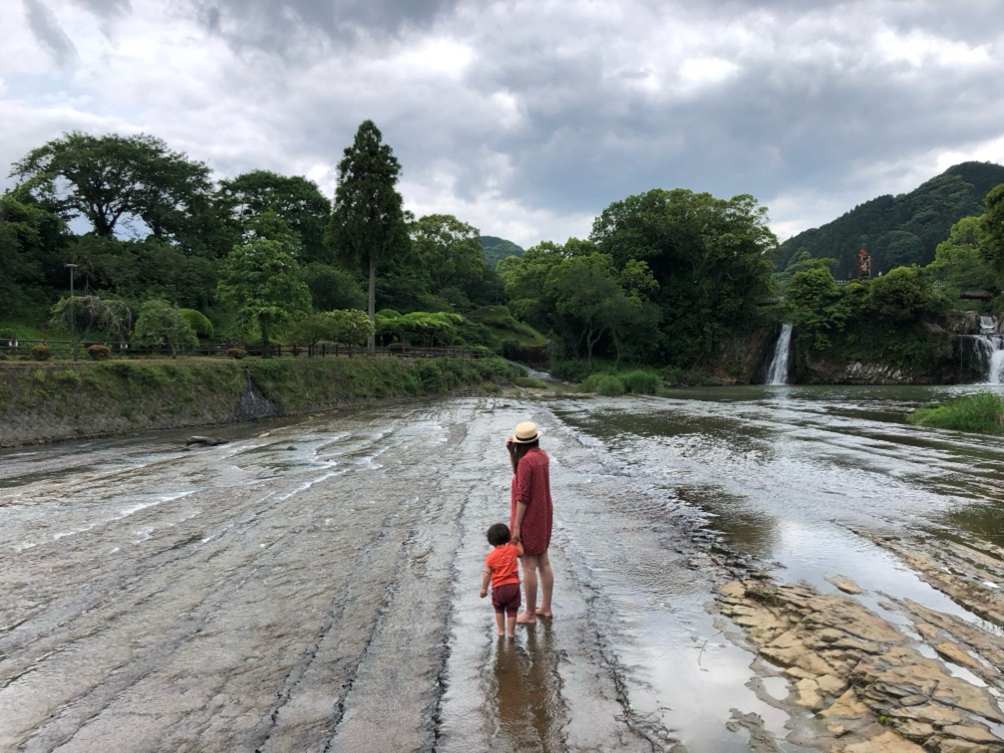
Copyright © Cecilia Luzi 2023
Despite the challenges I faced, especially when navigating a small rural town in Japan with my child, the kindness and empathy I received from everyone I encountered was invaluable. It helped me connect with people on a deeper level and understand how moving to rural areas can have transformative power. Now that I am back in Berlin, I have realized that this emotional journey embodies the true value of field research and participant observation.
